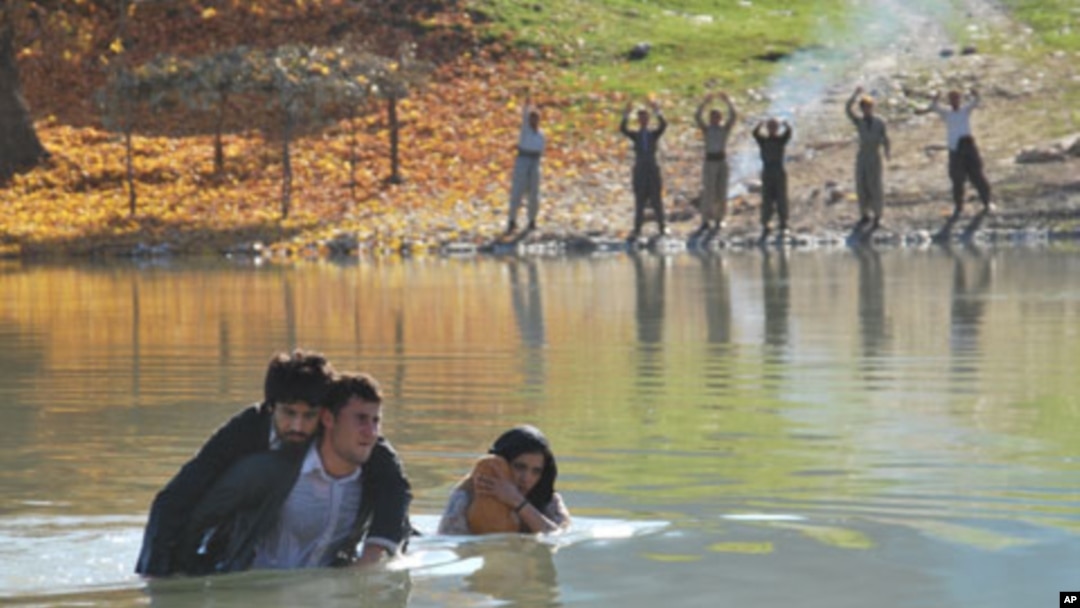The Flowers of Kirkuk, a new movie set during the time of former Iraqi dictator Saddam Hussein's persecution of Kurds in northern Iraq in the 1980s, has caused a buzz at the Rome Film Festival.
The 114-minute film tells the tragic story of an upper class Iraqi woman who is forced to choose between her love of a young doctor she met in school and the traditions of her family.
It is reputed to be the first international film to be shot in Iraq since the Gulf War.
Iranian-born Kurdish director and writer Fariborz Kamkari told a press conference in Rome he wanted to explore several themes, including women's rights in the Middle East and in Muslim society.
“I think it's fundamental, it's very important to represent these kinds of women. In this film, for the first time, we see a Muslim woman who is not a mother, she's not a wife, she's not a woman surrounded by children and a nasty guy who is picking at her every day. She's the one that falls in love and decides her own destiny and she sacrifices everything for this love.”
Moroccan actress Morjana Alaoui plays the main character, Najla. She says shooting the film over two months last year in the Autonomous Region of Kurdistan presented some challenges. Because of the lack of a developed film industry in Iraq, the crew and equipment had to be brought in. But Alaoui says the difficulties made the experience more poignant.
“No, it was incredible, it was unforgettable, and discovering this region and these people was really a chance for me. The set was full of different nationalities - we were like, 12 different nationalities on this set - so that was very rich culturally and being there was just amazing.”
Director Kamkari says that he wanted to give a voice to many Middle Eastern women he had met who were battling unjust rules in their societies. The director said he also hopes the heart-breaking scenes in the film - including the Al Anfal Campaign in which Saddam's troops used chemical weapons against Kurdish civilians - will help people understand today's Iraq.
“It's more than seven years that we are living with Iraq, Iraq's news, Iraq's situation, but nobody tells us about the roots of the Iraq, Iraq of today. I tried to tell the roots of Iraq from the point of view of somebody who lives there and saw everything from the inside, trying to tell, to explain why Iraq is like this today,” says Kamkari.
The Flowers of Kirkuk is an Italian-Swiss-Iraqi co-production. It also features Turkish born model-turned-actor Ertem Eser and Italian-based Tunisian actor Mohamed Zouaoui.


